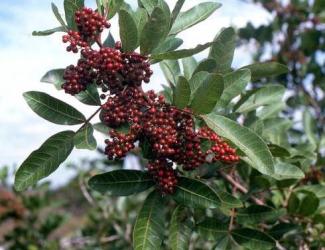
Breaking News
 Special Christmas Eve War Room! FBI Finds Millions More Epstein Docs, PLUS…Updates on Trump's...
Special Christmas Eve War Room! FBI Finds Millions More Epstein Docs, PLUS…Updates on Trump's...
 The U.S. Government Is Not the Daddy of U.S. Oil Companies
The U.S. Government Is Not the Daddy of U.S. Oil Companies
 Aussie Leaders Crush Online Free Speech To Prop Up Failing Multiculturalism
Aussie Leaders Crush Online Free Speech To Prop Up Failing Multiculturalism
 Cocaine Dogs & 'Safe Space Ambassadors': Rand Paul Airs The Festivus (Budget) Grievances
Cocaine Dogs & 'Safe Space Ambassadors': Rand Paul Airs The Festivus (Budget) Grievances
Top Tech News
 Travel gadget promises to dry and iron your clothes – totally hands-free
Travel gadget promises to dry and iron your clothes – totally hands-free
 Perfect Aircrete, Kitchen Ingredients.
Perfect Aircrete, Kitchen Ingredients.
 Futuristic pixel-raising display lets you feel what's onscreen
Futuristic pixel-raising display lets you feel what's onscreen
 Cutting-Edge Facility Generates Pure Water and Hydrogen Fuel from Seawater for Mere Pennies
Cutting-Edge Facility Generates Pure Water and Hydrogen Fuel from Seawater for Mere Pennies
 This tiny dev board is packed with features for ambitious makers
This tiny dev board is packed with features for ambitious makers
 Scientists Discover Gel to Regrow Tooth Enamel
Scientists Discover Gel to Regrow Tooth Enamel
 Vitamin C and Dandelion Root Killing Cancer Cells -- as Former CDC Director Calls for COVID-19...
Vitamin C and Dandelion Root Killing Cancer Cells -- as Former CDC Director Calls for COVID-19...
 Galactic Brain: US firm plans space-based data centers, power grid to challenge China
Galactic Brain: US firm plans space-based data centers, power grid to challenge China
 A microbial cleanup for glyphosate just earned a patent. Here's why that matters
A microbial cleanup for glyphosate just earned a patent. Here's why that matters
 Japan Breaks Internet Speed Record with 5 Million Times Faster Data Transfer
Japan Breaks Internet Speed Record with 5 Million Times Faster Data Transfer
Brazilian berry extract stops a superbug in its tracks

Scientists have unearthed what could be a valuable weapon on one of the key frontiers, discovering an extract from the Brazilian peppertree, an invasive weed found commonly across Florida, that can neutralize a dangerous antibiotic-resistant staph bacteria called Staphylococcus auereus.
Methicillin-resistant Staphylococcus auereus is a type of staph bacteria that has become resistant to many common antibiotics. Once mostly limited to nursing homes and hospitals, it has more recently spread to more common places like schools and gyms, where it can cause skin infections, bloodstream infections, sepsis and death.
The news isn't all bad on the MRSA front. The Centers for Disease Control and Prevention says that the percentage of Staphylococcus auereus resistant to the antibiotic methicillin has decreased significantly in recent years, as have the number of life-threatening MRSA infections in healthcare settings, resulting in 9,000 fewer deaths in hospital patients in 2011 than in 2005.



